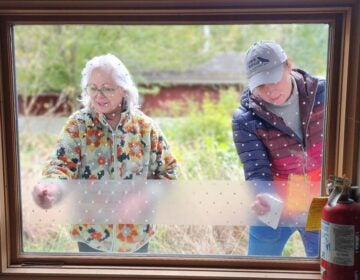Soaring temperatures make local crops wilt and farmers wither
Farmers in Philadelphia are watching their crop yields decrease as a result of the heat. They say there’s nothing they can really do about it.
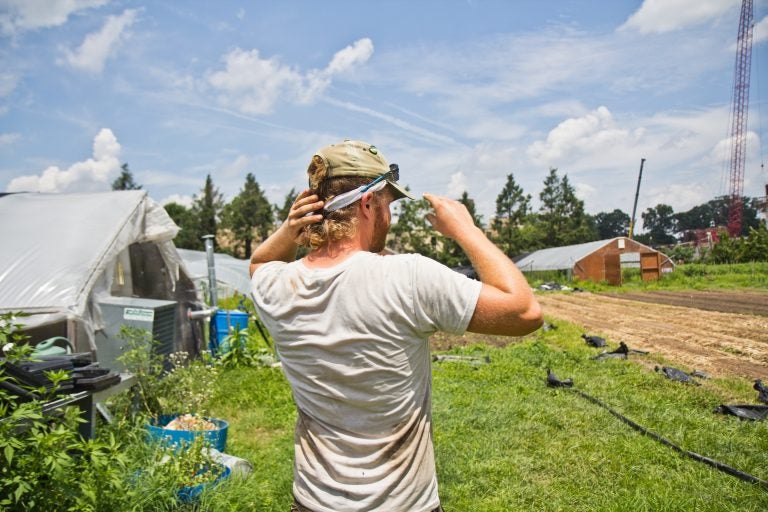
Adrian Galbraith-Paul is the manager of Heritage Farm in Philadelphia. (Kimberly Paynter/WHYY)
Workers at the Heritage Farm were covered in dirt and sweat on Wednesday as they sat in the shade next to beds of kale. Growers at the Northwest Philly sustainable farm have been at work all morning, despite the 90-degree heat.
Adrian Galbraith-Paul, the farm manager, has been working at Heritage Farm for six years. In the past three, he’s noticed that weather patterns have made farming more difficult.
“It feels like the weather’s gotten stranger and weather patterns have been less predictable,” Galbraith-Paul said. “And I definitely think in the last three years we’ve had an incredible amount of rainstorms and with more frequency and more severity.”
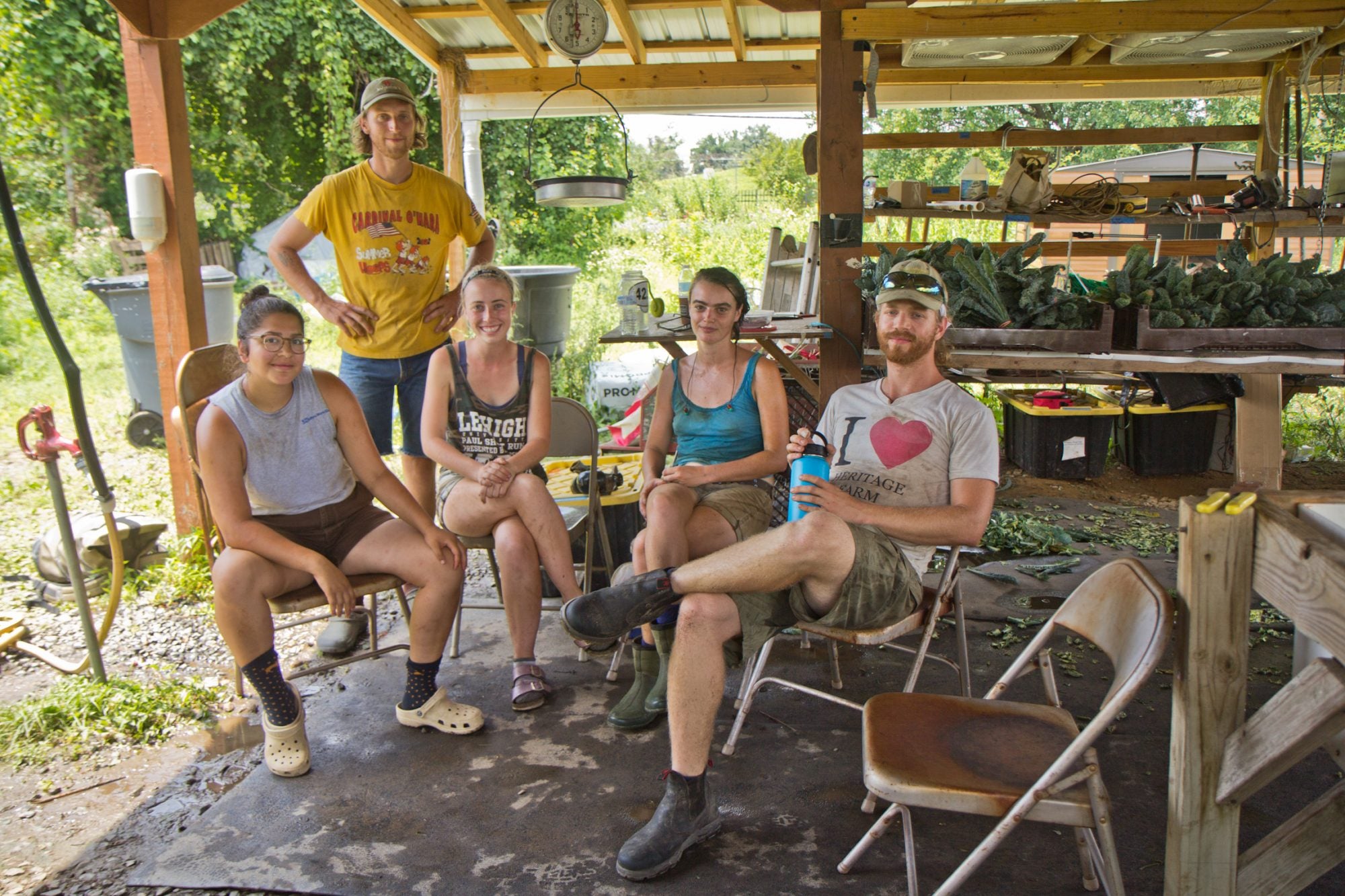
The rains are paired with soaring summer temperatures — as the city declared a heat health emergency on Wednesday. When it’s this hot, Galbraith-Paul said tomatoes are the first crops to show signs of distress.
“I mean the crops don’t like it when it’s this hot,” he said. “The tomatoes start dropping blossoms at like 95, 92 degrees, which is a problem, but every crop gets heat-stressed.”
The effect that the heat has on tomatoes also affects the farm. Blossoms falling off the plant is just a warning of what’s to come.
“We’ll probably lose a bit of our production in about a month, three weeks to a month,” he said. “[Production] will drop significantly because of the heatwave. I would say maybe 20 or 30%.”
The signs of heat stress are easy enough to identify, especially with tomato plants.
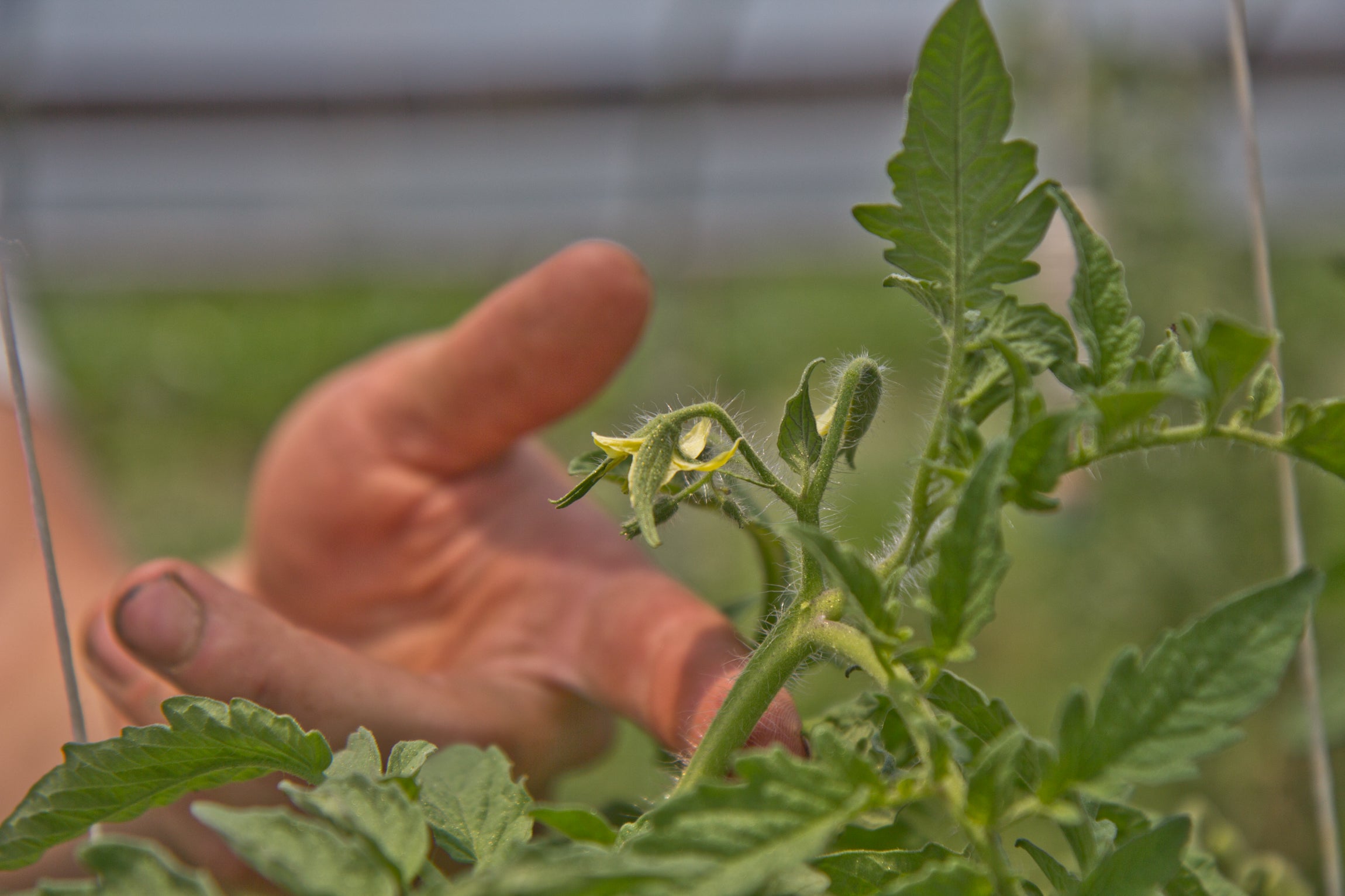
“The first sign of heat is the leaves curl up,” Galbraith-Paul said. “The tomatoes are basically…not respiring … The second sign that you’d see is actually the tomatoes would feel hot to the touch. And when that happens, they’re in real trouble.”
In a lot of ways, plants are like people. They need a mist every now and then to cool down.
In one field on the farm, an irrigation system with timers is set up to water baby arugula.
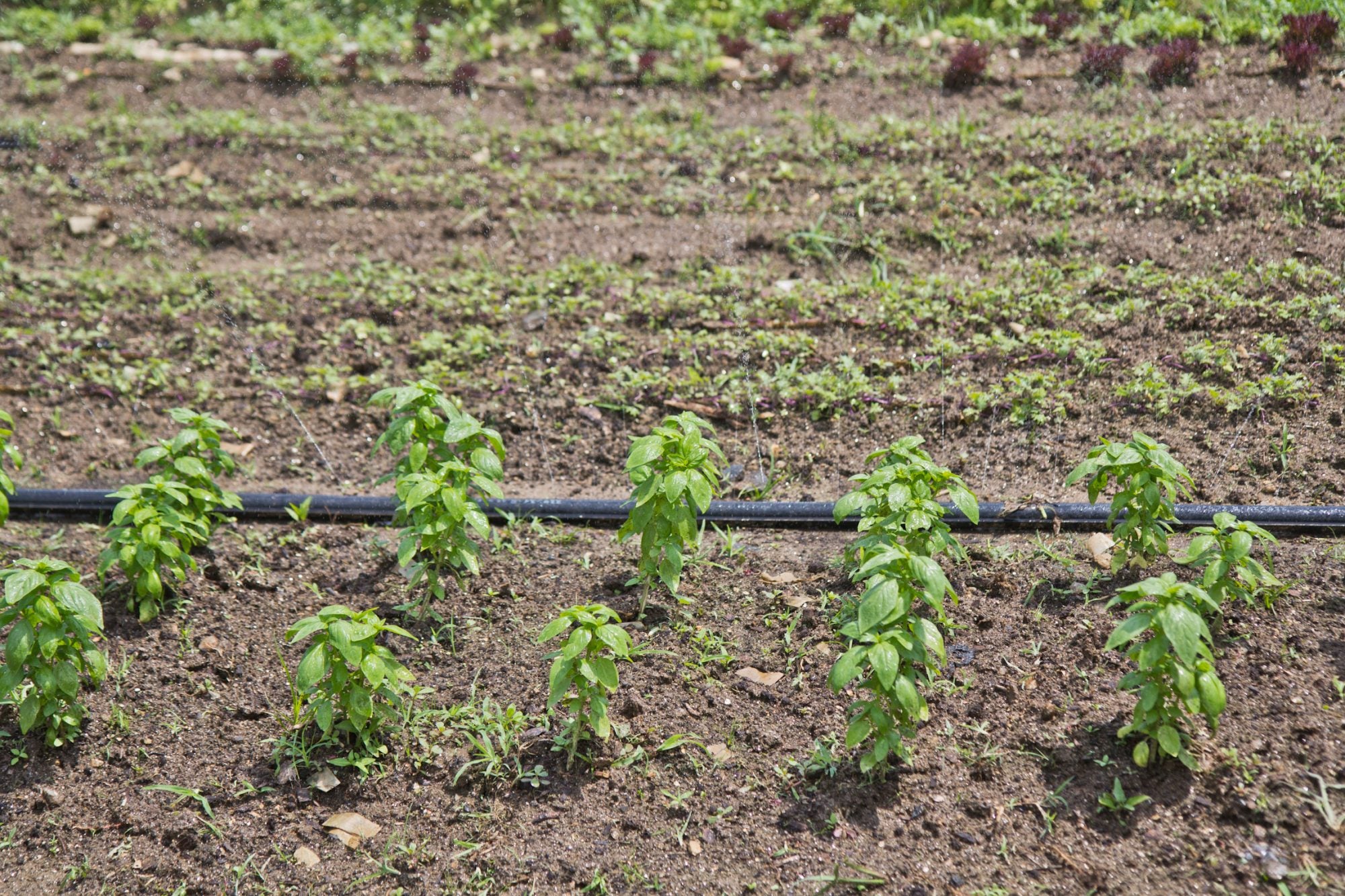
“Throughout the course of the day it’s being watered, maybe five times a day, even if it’s just for two or three minutes, just to cool the vegetables,” Galbraith-Paul said.
Heritage Farms isn’t alone in struggling with the heat. Nice Roots Farm, which sells food at farm stands across the city, also donates to local pantries in need of produce.
According to George Matysik, the executive director of Share Food Program — which runs Nice Roots Farm — said the heat affects whether those crops can be harvested at all.
“That’s one of the other challenges that we have as a volunteer-based organization,” Matysik said. “When the heat gets excessive, we can’t have our volunteers out harvesting. So we have to hold off until it gets a little bit cooler out here.”
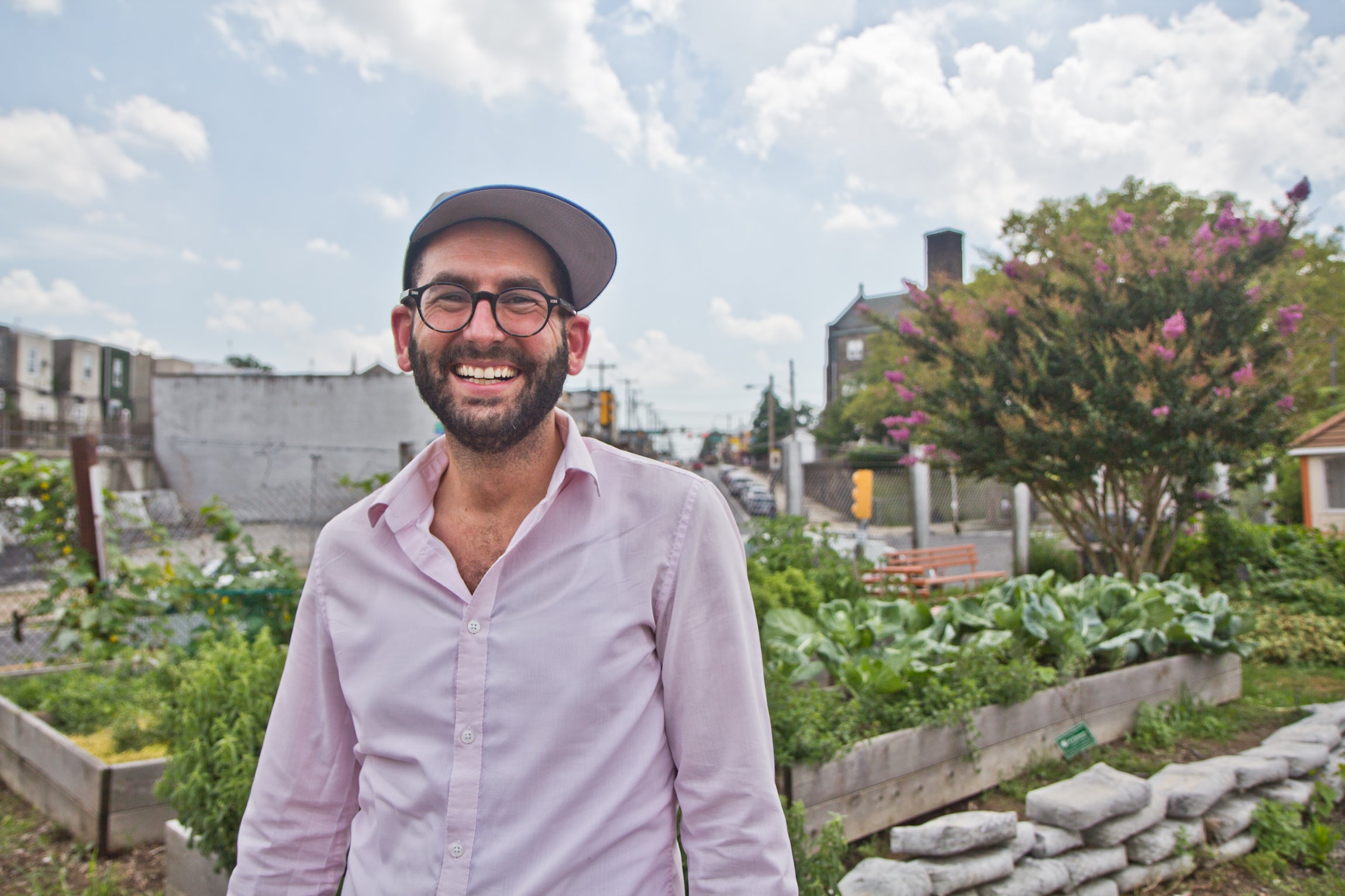
Beyond heat hindering production, it can also change their distribution methods. High temperatures often lower the crop yield, and when those crops are supposed to be donated to food pantries, it can cost community organizations like the Share Food Program.
“Anytime there’s a weather-related event that prevents us from harvesting at the level that we need to, we have to supplement that by buying food,” Matysik said.
WHYY is your source for fact-based, in-depth journalism and information. As a nonprofit organization, we rely on financial support from readers like you. Please give today.


